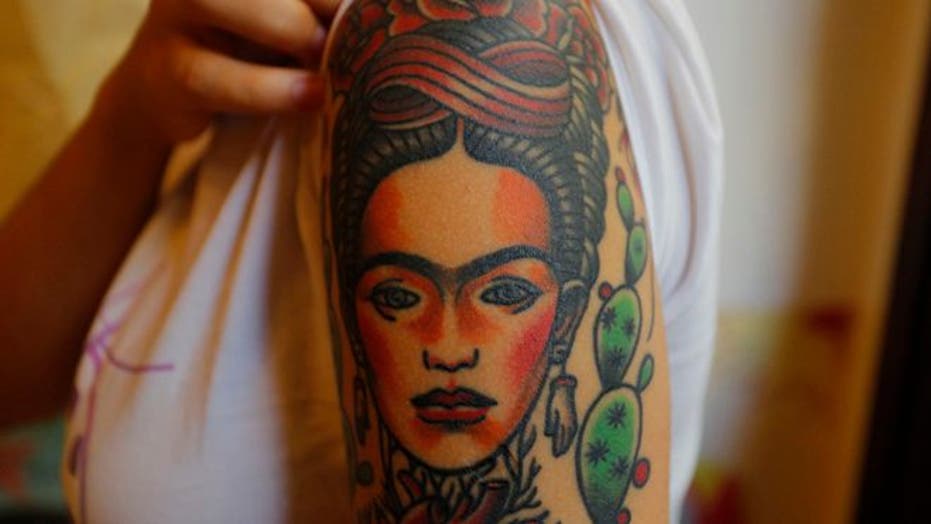For decades, those who wanted to ink their body in Cuba did so secretly.
The socialist revolution drove tattoos underground, with parlors getting raided because they were seen as capitalist immortality.
It was a stark contrast from the heydays of the 1950s, when tattoos were for sailors prowling the streets of Havana and tourists lurching from sex shows to gambling den.
But now skin art is on the rebound in Cuba, with hundreds of tattoo parlors operating largely unmolested across the Caribbean island.
The studio where Mauro Coca works, La Marca, or The Brand, is the most salient example of Cuba's new acceptance of tattooing. The studio sits on two floors of a refurbished colonial building in the middle of Old Havana, the government-restored heart of the city, giving it the clear if tacit endorsement of the City Historian's Office, the agency overseeing every aspect of development in Havana's most important tourist attraction.
La Marca opened a year ago on one of Old Havana's busiest streets and has done some 600 tattoos for a mix of Cuban and foreign clients. It's been used as a space for government-sponsored art events and its managers say they've never had any trouble with the state despite their lack of a license explicitly permitting tattooing.
Like so many other activities in Cuba, tattooing is neither illegal nor explicitly permitted and regulated, leaving it operating in the gray area Cubans refer to as "alegal," meaning simply that something lacks any legal status, positive or negative. And like so many other goods, tattooing supplies can't be purchased from state businesses, meaning ink, needles and other goods must be imported in travelers' luggage.
"Tattooing remains in limbo," said Leo Canosa, La Marca's owner.
In the middle of last year, state inspectors raided at least a half dozen Havana tattoo parlors, confiscating tattooing machines, needles and inks without providing a clear explanation. Alarmed, other parlor owners closed in order to avoid confiscation.
In contrast to the past, when tattoo artists simply closed down in the face of official pressure, owners of the shuttered parlors called a meeting with government inspectors and pushed for a legal resolution. They were allowed to reopen soon after.
"Tattoo artists, in reality, don't have any official status, as artists or anything," said Che Alejandro Pando, a tattooist who has been working in Havana for more than 20 years. "We've been fighting for them to accept us as artists in Cuba, but we haven't found success."
For much of the past half-century, ordinary Cubans associated tattoos with prisoners, who etched crude images on each other behind bars. That image began to soften by the early 2000s with the arrival of more tourists, some of them tattooed, and tattoo artists' improved ability to get professional supplies as air travel to the island rose.
Now tattoos of Cuban revolutionary figures, the Cuban flag, gods and goddess of the African-based Cuban religion Santeria, among other designs, can be found on Cubans of all ages and social status.
"Tattoos are a work of art," said Alain Gomez, a 31-year-old self-employed worker with what he said was his Chinese Zodiac sign tattooed in black on one arm. "It's not like before, when people looked down on someone with a tattoo."
Based on reporting by the Associated Press.









































